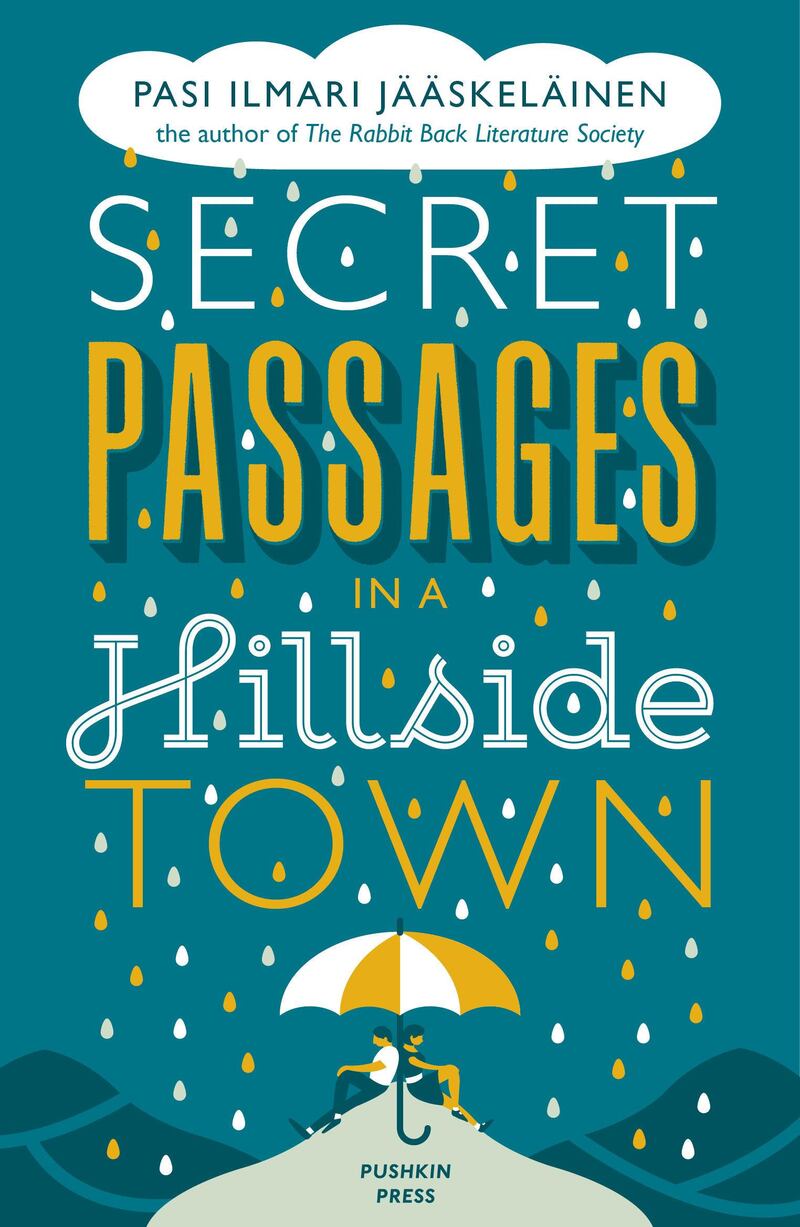Finnish writer Pasi Ilmari Jaaskelainen's novel Secret Passages in a Hillside Town is a fanciful mystery that takes more twists and turns than the secret passages – holes in the ground that exude equal parts "indefinable menace" and intoxicating attraction – that are burrowed deep into the ground beneath Jyvaskyla, the city in central Finland where the story is set.
Olli Suominen is a publisher. He lives a comfortable if unexceptional life with his wife Aino and their small son Lauri. He has a habit of losing umbrellas, and recently joined a film club. Joining the club was something of an accident – via the confusion of an invite on Facebook shortly after he signed up to the latter believing it would be useful for his business – but he is soon hooked, enchanted by classics such as La Dolce Vita and Jules et Jim. Little does he know that his life is about to take on its own filmic sheen.
Facebook plays an important part in the story that unfolds. Olli quickly amasses a few hundred friends, accepting requests from people whose names ring a bell, even if he can’t quite remember the circumstances of their real-world interactions.
One of whom is Greta Kara, his old girlfriend, not that he recognises her as his "first great love" straight away; it is only later that he puts two and two together, and by this point he has also realised that she is the author of a recent bestselling book, A Guide to the Cinematic Life: "A cinematic life can't take away pain, but it can make it more aesthetic, make of it a kind of wine of emotion, a music of feeling."
Knowing what it would do for his publishing house if they could sign Greta's next book, Olli put outs feelers, and rather amazingly, she seems keen. To continue to describe the plot from this point would be a waste, because if there is one thing this shape-shifting novel does magnificently, it is completely subverting the reader's expectations.
Although it won the Kuvastaja Prize for best Finnish fantasy novel, to define it as such doesn’t really do justice to the full weirdness of what is going on. It deals in fantasy in as much as there are strange, unreal encounters or moments – the unexplained amnesia that afflicts Olli and his friends when they explored the secret passages as children, for example: “None of them remembered anything that they could talk about in the light of day. Whenever they thought of something, they couldn’t find words to express it” – but it isn’t a fantasy novel in the sense of strict alternative realities.
Flashbacks to Olli’s childhood and his adventures with a group of children he befriended during the holidays increasingly take centre stage. The group, known as “the Famous Five of Tourula” (a reference to the Enid Blyton books), foil local crooks and solve mysteries. Thus, with its emphasis on the lure of the past, and with this the power of cinema, it is more a story about the forgiving nature of memory – “[Greta] knows how to choose her words skillfully.
Her talk brings the past closer, close enough to touch the present, like the hand of a beloved. The years that have grown between them gradually fade until they lose their meaning completely” – and the possibility of reinvention. “I started to see my life as an adventure and myself as its tragic but glorious heroine,” Greta explains to Olli at one point, “who would eventually triumph over her hard fate if she only learnt to live fearlessly.”
_____________
Read more:
[ Book review: Troublemakers offers a riveting look back on the early days of Silicon Valley ]
[ Book review: My Sweet Orange Tree is a tale to both warm and break your heart ]
[ Book review: Women’s stories and wordplay abound in Ibrahim Nasrallah's Gaza Weddings ]
_____________
Long ago, Olli (and Greta) were grossly wronged – and worse – by the other members of his childhood gang. Only now are these bullies attempting to make amends: by conducting a "cinematic project" of "atonement" with Greta and Olli as the romantic leads in a "beautiful love story". But as one of the self-appointed directors of this endeavour points out, although on first glance it looks like a romantic comedy, the project is shot through with "hints of black". So too Jaaskelainen's novel shifts between light and dark, comedy and horror, all with shocking and unexpected ease.
I continually found myself thinking I was reading one type of book, only for the narrative to veer off in a different direction entirely. Yet all the while it somehow makes sense. As when Olli explains the "disorder" his life spirals into: "The whole thing was bizarre and confusing but at the same time somehow simple." The only elements I think could have been cut were the descriptions of the "confused, surreal dreams" that plague Olli – all of which begin to fade into one after a while – especially since, at more than 400 pages, the novel isn't short to begin with.
All the same, having created a narrative with such always-shifting perimeters allows Jaaskelainen to get away with much in this delightful, magical, inventive – if meandering – story about lost love and second chances.






